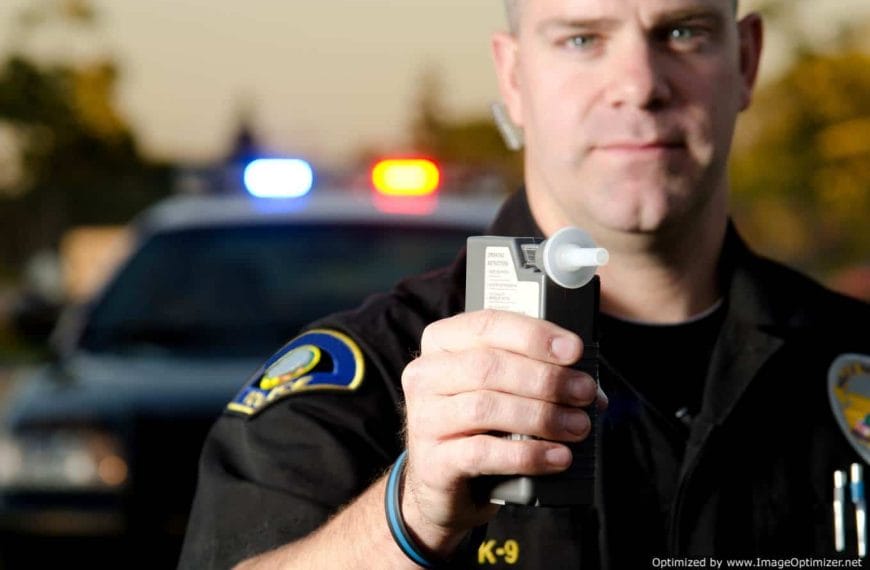Being arrested for a DWI in Texas can have serious consequences, including fines, jail time, and a suspended license. In this comprehensive guide, we will explore the steps you should take if you find yourself facing a DWI charge in Texas. From understanding the arrest and booking process to navigating the legal system and exploring defense strategies, we will provide you with the information you need to confidently defend yourself. We will also discuss the importance of hiring a DWI attorney and how they can help you throughout the process. By following the advice in this guide, you can minimize the impact of a DWI on your life and protect your rights and future.
But here’s a question to ponder: Is it possible to successfully defend yourself against DWI charges in Texas without legal assistance?
Before we delve into the details, let’s explore the complexities and nuances of navigating a DWI in Texas and the importance of having a knowledgeable attorney by your side.
Understanding the DWI Arrest and Immediate Actions
When arrested for a DWI, it’s important to understand what to expect and the immediate actions you should take. This section will cover the DWI arrest process in Texas, including being stopped by law enforcement, field sobriety tests, and chemical tests. We will also discuss the booking process and what happens after your arrest, such as posting bail and dealing with the potential suspension of your driver’s license. Understanding these processes and taking the necessary actions can help you navigate the early stages of a DWI case effectively.
When you are pulled over for suspected DWI, law enforcement will follow a specific arrest process to ensure your safety and gather evidence for the case against you. This process typically involves several steps:
- The traffic stop: Law enforcement will pull you over if they have reasonable suspicion to believe you are driving while intoxicated. They may observe signs of impaired driving, such as swerving or erratic behavior.
- Field sobriety tests: If the officer suspects you are under the influence, they will ask you to perform various roadside tests, also known as field sobriety tests. These tests assess your coordination, balance, and ability to follow instructions.
- Chemical tests: If the officer has probable cause to believe you are intoxicated, they may request that you take a chemical test, such as a breathalyzer or blood test. These tests measure your blood alcohol concentration (BAC).
After your arrest, you will go through the booking process, which involves being fingerprinted, photographed, and providing personal information. This information will be recorded in the police records.
Once you are booked, you may have the option to post bail, which allows you to be released from custody until your court date. The amount of bail will depend on several factors, including the severity of the charges and your criminal history.
It’s important to note that a DWI arrest in Texas can lead to the suspension of your driver’s license. The duration of the suspension will depend on various factors, such as your BAC at the time of arrest and whether you refused to take a chemical test.
| Key Actions | Key Information |
|---|---|
| 1. Cooperate with law enforcement during the traffic stop and field sobriety tests. | – Law enforcement needs probable cause to make an arrest. – Refusing to comply may lead to additional charges. |
| 2. Understand your rights when asked to take a chemical test. | – You have the right to refuse a chemical test, but it may result in immediate license suspension. – Consent to the test can provide evidence for your defense. |
| 3. Seek legal advice immediately after your arrest. | – A skilled DWI attorney can guide you through the legal process and protect your rights. – They can help with bail posting, license suspension hearings, and building a strong defense strategy. |
The Legal Process for DWI in Texas
Once arrested for a DWI in Texas, you will need to navigate the legal process. Understanding the various stages and procedures involved is crucial to building a strong defense and protecting your rights. This section will provide an overview of the legal process for DWI cases, from arraignment and court appearances to pre-trial hearings, motions, and the trial process.
Arraignment and Initial Court Appearances
The first step in the legal process is arraignment, where you will be formally charged with a DWI offense. During this court appearance, you will enter a plea of guilty or not guilty. It is crucial to have legal representation at this stage to ensure your rights are protected and to receive guidance on the best course of action.
Pre-Trial Hearings and Motions
After arraignment, there may be additional court appearances, known as pre-trial hearings. These hearings serve various purposes, such as discussing evidence, setting trial dates, and resolving any pretrial motions. Motions can be filed by either the prosecution or defense to challenge or request actions related to the case. Your attorney will navigate these proceedings to strengthen your defense strategy and potentially leverage any weaknesses in the prosecution’s case.
Trial Process and Courtroom Expectations
If your case proceeds to trial, it will be heard in a Texas court. The trial process involves presenting evidence, examining witnesses, and making arguments to the judge or jury. Your attorney will prepare your defense and guide you through the trial proceedings. It’s important to be prepared for the trial process, including the possibility of testifying, cross-examination, and presenting evidence.
Understanding the legal process for DWI cases in Texas is crucial in effectively defending yourself against the charges. Having a knowledgeable and experienced attorney by your side can greatly improve your chances of a favorable outcome. Navigating the legal system can be complex and daunting, but with the right guidance, you can protect your rights and work towards the best possible resolution for your case.
Defense Strategies for DWI in Texas
In this section, we will explore various defense strategies that can be used to fight a DWI charge in Texas. By understanding these defense strategies, you can work towards a favorable outcome in your case.
Challenging Traffic Stop and Arrest Procedures:
One strategy involves challenging the traffic stop and arrest procedures, looking for any violations of your rights or errors made by law enforcement. It is essential to examine whether the traffic stop was conducted legally and whether the arresting officer followed proper protocols during the arrest. Any mistakes or violations could potentially weaken the prosecution’s case against you.
Questioning the Accuracy of Sobriety Testing:
Another defense strategy is to question the accuracy of sobriety testing, such as field sobriety tests and breathalyzer tests. These tests are not foolproof and can be influenced by various factors. By scrutinizing the administration of these tests and the conditions under which they were conducted, you can challenge their reliability and potentially cast doubt on the accuracy of the results.
Exploring Plea Bargain Options:
In some cases, it may be beneficial to explore plea bargain options. A plea bargain is an agreement between the defendant and the prosecution, where the defendant agrees to plead guilty to a lesser charge or accept a reduced sentence in exchange for avoiding a trial. This strategy can be effective in securing a more favorable outcome and avoiding the uncertainties and potential harsh penalties associated with a trial.
Considering Pretrial Diversion Programs:
Pretrial diversion programs provide an alternative to traditional prosecution for certain individuals facing criminal charges, including DWIs. These programs typically involve completing specific conditions, such as drug and alcohol education courses, community service, or counseling, in exchange for the dismissal of charges. Participating in a pretrial diversion program can allow you to avoid a criminal conviction and the associated consequences.
When facing a DWI charge in Texas, it is important to consult with an experienced DWI attorney who can assess the details of your case and determine the most effective defense strategies to pursue. Each case is unique, and a skilled attorney can provide personalized guidance and representation throughout the legal process.
Seeking Legal Assistance
When facing a DWI charge in Texas, it is crucial to seek legal assistance from an experienced DWI attorney. Hiring a DWI attorney can greatly increase your chances of building a strong defense and achieving a favorable outcome in your case.
A DWI attorney brings expertise and knowledge to the table, understanding the complexities of the legal system and the specific laws and regulations surrounding DWI cases in Texas. They have the necessary skills to navigate the intricacies of your case, analyze the evidence against you, and develop a strategic defense strategy.
By hiring a DWI attorney, you can benefit from their legal expertise in several ways:
- Case Evaluation: A skilled DWI attorney will evaluate the details of your case, assess the evidence, and identify any potential issues or weaknesses that can be used to your advantage.
- Defense Preparation: Your attorney will gather all relevant information, interview witnesses, and thoroughly prepare your defense. They will work to challenge the prosecution’s evidence, question the accuracy of sobriety tests, and explore any possible constitutional violations.
- Negotiations and Plea Bargains: A DWI attorney has experience negotiating with prosecutors and may be able to secure a favorable plea bargain on your behalf. They understand the potential consequences of a DWI conviction and will work tirelessly to protect your rights and achieve the best possible outcome.
- Courtroom Representation: If your case goes to trial, a DWI attorney will provide skilled representation in court, presenting your defense and challenging the prosecution’s case. They will utilize their legal expertise to advocate for your innocence and protect your rights throughout the trial process.
With the help of legal expertise, you can be confident that every aspect of your defense is being handled professionally and effectively. It is essential to begin preparing for your defense as soon as possible, and hiring a DWI attorney is the first step toward building a strong case and safeguarding your future.
Conclusion
Throughout this comprehensive guide, we have covered the essential steps and information needed to navigate a DWI charge in Texas. By taking immediate action, understanding the legal process, and seeking legal assistance, you can confidently defend yourself against DWI charges and work towards the best possible outcome.
First and foremost, it is crucial to recognize the seriousness of a DWI charge in Texas. The potential consequences, such as fines, jail time, and a suspended license, can have a significant impact on your life. That’s why it is essential to act swiftly after an arrest and begin strategizing your defense.
Understanding the legal process is key to building a strong defense. From the initial arrest and booking process to the arraignment, court appearances, and potential trial, each step carries its own challenges and opportunities. Working with an experienced DWI attorney is vital to navigate these complexities and protect your rights.
By following the guidance provided in this article, you can approach your DWI case with confidence. Remember, a DWI charge is a serious matter, but with the right knowledge and support, you can mount an effective defense and safeguard your future.













